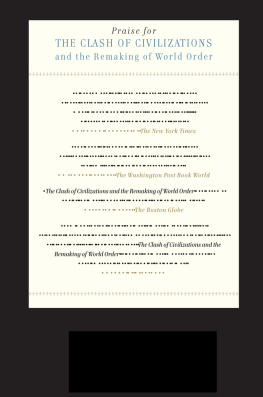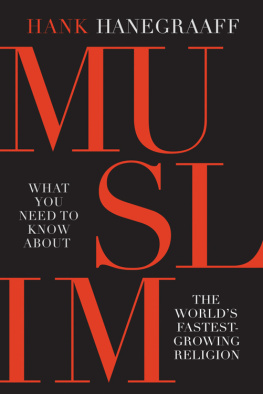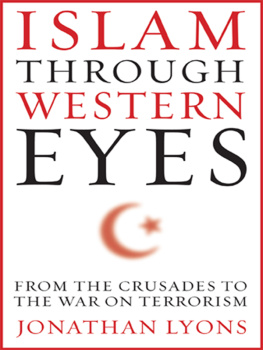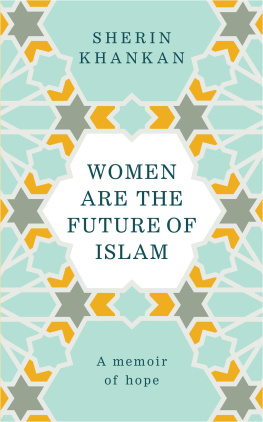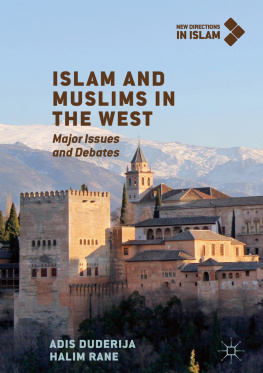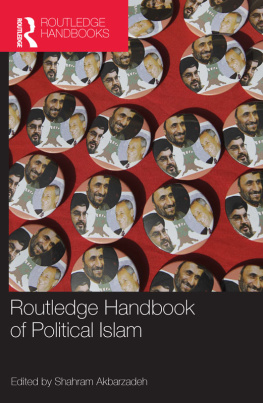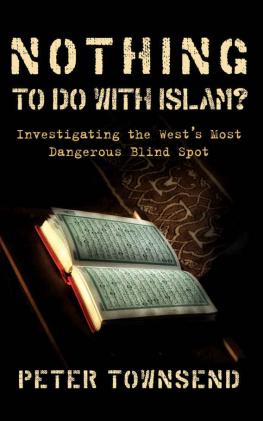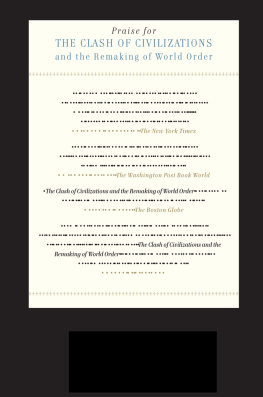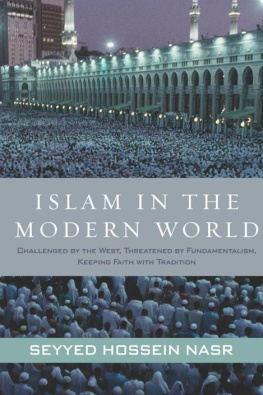Cover
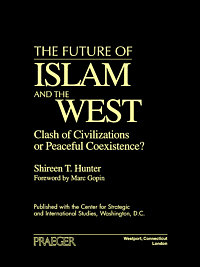
| title | : | Future of Islam and the West : Clash of Civilizations or Peaceful Coexistence? |
| author | : | Hunter, Shireen. |
| publisher | : | Greenwood Publishing Group |
| isbn10 | asin | : | 0275962873 |
| print isbn13 | : | 9780275962876 |
| ebook isbn13 | : | 9780313048548 |
| language | : | English |
| subject | Islam , Islam--Relations--Christianity, Iran, Islam , Christianity and other religions--Islam, Saudi Arabia, Cristianismo y otras religiones--Islam, Middle East--Relations--Europe, Medio Oriente--Relaciones--Europa, Europe--Relations--Middle East, Europa- |
| publication date | : | 1998 |
| lcc | : | BP172.H86 1998eb |
| ddc | : | 261.27 |
| subject | : | Islam , Islam--Relations--Christianity, Iran, Islam , Christianity and other religions--Islam, Saudi Arabia, Cristianismo y otras religiones--Islam, Middle East--Relations--Europe, Medio Oriente--Relaciones--Europa, Europe--Relations--Middle East, Europa- |
Page iii
THE FUTURE OF ISLAM AND THE WEST
Clash of Civilizations or Peaceful Coexistence?
Shireen T.Hunter
Foreword by Marc Gopin
Published with the Center for Strategic and International Studies, Washington, D.C.

Page iv
Library of Congress Cataloging-in-Publication Data
Hunter, Shireen.
The future of Islam and the west: clash of civilizations or
peaceful coexistence?/Shireen T.Hunter.
p. cm.
Includes bibliographical references and index.
ISBN 0-275-96287-3 (alk. paper).ISBN 0-275-96288-1 (pbk.:
alk. paper)
1. IslamRelationsChristianity. 2. Christianity and other
religionsIslam. 3. Middle EastRelationsEurope. 4. Europe
RelationsMiddle East. 5. IslamIran. 6. IslamSaudi Arabia.
I. Title.
DS65.5.E8H861998
303.4825604dc21 9752799
British Library Cataloging in Publication data is available.
Copyright 1998 by The Center for Strategic and
International Studies
All rights reserved. No portion of this book may be
reproduced, by any process or technique, without the
express written consent of the publisher.
Library of Congress Catalog Card Number: 97-52799
ISBN: 0-275-96287-3
0-275-96288-1 (pbk.)
First published in 1998
Praeger Publishers, 88 Post Road West, Westport, CT 06881
An imprint of Greenwood Publishing Group, Inc.
Printed in the United States of America

The paper used in this book complies with the Permanent
Paper Standard issued by the National Information Standards
Organization (Z39.481984).
10 9 8 7 6 5 4
Page v
Contents
Foreword | vii |
Introduction | |
The End of History and the Clash of Civilizations | |
Islams Salience | |
Evolution of Religion and Secularism | |
Real Cause of the Clash | |
Goals and Methodology | |
| Unfolding of the Islamic Experience | |
The Early Islamic Community: Myth and Reality | |
Islamic Theory of Society and Polity | |
Post-Prophetic Islamic Community: Persistence of Ethnic and Class Distinctions and the Early Fissure of the Community | |
Islamic Conception of International Relations: Theory and Practice | |
| The Islamist Movement and Its Anti-Western Dimensions: Islamic Particularism or Sociopolitical Mutation? | |
Origins of the Islamist Phenomenon | |
Intensification of the Dualistic Development of Muslim Societies | |
External Causes of the Rise of the Islamist Phenomenon | |
Page vi
Roots of the Islamist Phenomenons Anti-Western Dimensions | |
| The Role of Islam in Shaping Foreign Policy: Case Studies of Iran and Saudi Arabia | |
Modern Iran | |
Saudi Arabia: A Different Kind of Islamic State | |
Conclusions and Outlook for Islam-West Relations | |
Notes | |
Select Bibliography | |
Index | |
About the Author | |
Page vii
Foreword
The most important question facing the global community today is how to respond to the extremely rapid pace of transformation in international relationships that is accompanied by and in part caused by the unprecedented degree of social change occurring in many parts of the world. It is by now a truism that these developments have been unleashed, like pressured water from a corked bottle, by the unraveling of Cold War alignments and the remarkable shift into prominence of international democratic and capitalist institutions. The sinking into poverty of many and the fantastic and increasing prosperity of others have also created enormous tensions in many regions and cultures.
It has been tempting in such an environment to search intellectually for new alignments and, in a darker way, to search for new enemies. This is not a sinister desire by any means. But the Cold War did provide a sense of order to a very dangerous world. Even if that order had as its capstone the possibility of a global nuclear holocaust, it is remarkable how much more comforting it was for many of us to be familiar with that fateful danger, recognize the challenge, and respond to it with all our might technologically, than it is now not really to know from whence a mortal threat to our civilization could come next. Real dangers lie ahead, but it will be a while before we become accustomed psychologically to the amorphous quality of future threats, be they from despotic regimes with weapons of mass destruction; from the further unraveling of large concentrations of power, as in China;
Page viii
from global economic depression in an astonishingly interconnected marketplace; from catastrophic industrial accidents; from internally generated social turmoil and terrorism; or from some combination of all of these.
One of the regions going through the most dramatic socioeconomic shifts is the Middle Eastparticularly the Arab lands. The emerging generations are facing a chaotic world with enormous challenges to their economic well-being and the very fabric of their culture. There are many complicated reasons for this upheaval, and several of those causes are brilliantly analyzed in Shireen Hunters study.
Next page

